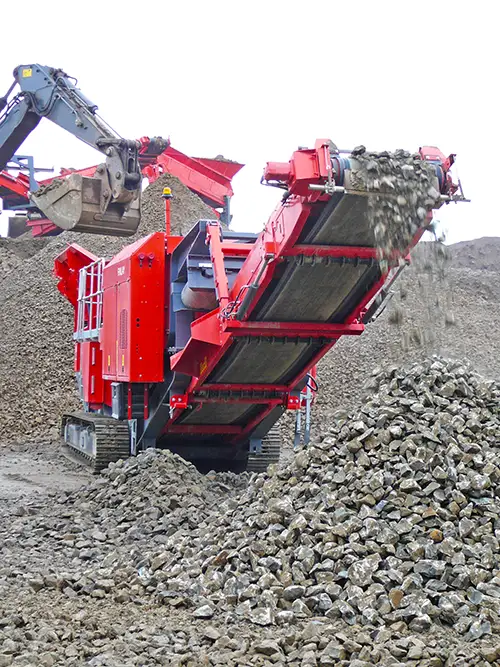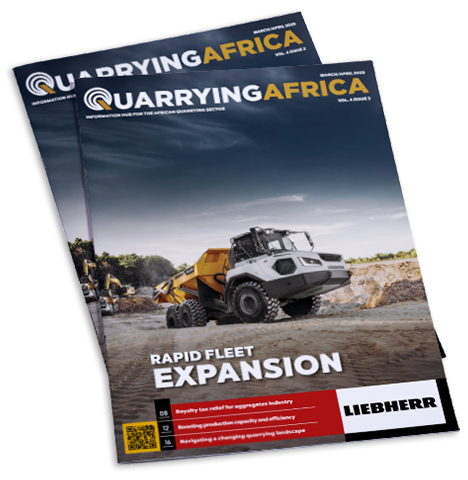Behind every successful equipment brand in any market is a good dealer, which is ultimately the differentiator between success and failure. Having been appointed the Finlay dealer in 2013, Bell Equipment has been the force behind Finlay’s firm growth in southern Africa over the past decade.
Bell’s jurisdiction covers South Africa, Namibia, Swaziland, Lesotho, Zimbabwe, Mozambique, Botswana, the Democratic Republic of Congo (DRC) and Zambia. While Bell supports the brand through its own operations in South Africa, Zimbabwe and Zambia, it works through a number of sub-dealers in other territories.
Key to the success of the decade-long partnership are the shared values between the two companies. Neil McIlwaine, Global Business Development & Marketing director at Finlay, says by striving for the best sales experience, complemented by a legacy of dependable aftersales support, both companies are driven by the same principles.
“With over 25 sales and service hubs across sub-Sahara Africa, Bell has provided our customers with the best possible levels of support over the past 10 years,” says McIlwaine.
Stephen McNeill, Product Marketing Manager at Bell Equipment, agrees that the shared core values between Bell and Finlay have been the key to the success of the partnership. “Bell and Finlay have a similar approach to doing business,” he says. “Finlay is a company that puts value on the quality of its products, but more importantly on supporting its customers. Similarly, Bell is a company that built its reputation on quality products supported by a strong aftermarket regime.”
McNeill says the past decade has been a journey of learning from each other to provide the best products, solutions and support to customers in the region. The partnership, he says, has been a win-win collaboration between the two companies, as they both leverage each other’s strengths. Finlay’s range of crushing and screening gear complements Bell’s existing product offering and is in line with Bell’s strategy to provide a one-stop shop for first class equipment solutions to its customers throughout southern Africa.
On the other hand, Finlay has benefited from Bell’s reputation in the market, as well as from its extended support infrastructure. This has offered the leading crushing and screening manufacturer a great platform to further develop new equipment sales and support the large existing population of machines across the region.

Key successes
Over the past 10 years, Bell has recorded some major successes with the Finlay brand. On average, says McNeill, the company has sold about 30 machines per year over the past decade. “Overall, we have been very successful, particularly on the screening side of the business,” he says.
Despite the recent unprecedented Covid-19 setbacks, along with multiple industry challenges, McIlwaine tells Quarrying Africa that Bell remains one of Finlay’s top 10 global dealers worldwide. The superior customer service and support, he says, has grown Finlay’s market share in the region through stock availability, coupled with multiple service sites strategically located across southern Africa.
A major highlight in Bell’s 10-year dealership was the Outstanding Achievement in Parts Business Support award at the Finlay dealer conference held in Jacksonville, Florida, United States in November 2018. The award was recognition for bolstering parts holding by 20% to better support customers and offer class-leading aftermarket support.
Parts support, says McNeill, is a critical arm of the company’s business and for this reason Bell is strategically focusing on ways to improve parts availability for its customers.
“We are continuously re-evaluating our parts strategy in line with our customer needs. In today’s operating conditions, downtime due to parts unavailability is out of the question for equipment owners. We have since increased our parts stockholding to ensure maximum uptime for our customers,” says McNeill.
Bell currently holds about R30-million worth of Finlay parts at its Global Logistics Centre. Leveraging a network of 23 branches in South Africa, these can be delivered in 24 hours anywhere in the country, even direct to customers.
“We continue to increase our machine inventory. We have had stock challenges in the past two years as a result of the global supply chain challenges, but this year we are aiming to increase our machine stockholding to well over R110-million worth of machines in South Africa alone,” says McNeill.

Top models
Bell offers a wide range of Finlay mobile crushers, screens and conveyors to its customers in the region. These, says McNeill, comprise eight crushers, 10 screens and two conveyors. The 883+ scalping screen and the 893 heavy duty screen in particular have been the most successful models.
McIlwaine agrees, saying that over the past 10 years, the market-leading 893 heavy duty scalping screen and Spaleck screen models, have been the top sellers.
“Given that Finlay has one of the largest product ranges in the industry, a number of models have proven popular within the southern African market. Most notably, the J-1175 has an established reputation in the crushing market, especially for its capabilities within hard rock mining applications,” says McIlwaine. “To provide context, a number of units operating in the field have clocked in excess of 30 000 hours without any major overhauls needed.”
Finlay’s C-1540 mid-sized cone crusher has also proven popular. With open circuit and recirculation options available, this unit provides the much-needed flexibility for small to mid-tier producers. It boasts the proven Terex 1000 cone chamber with direct variable hydrostatic drive, automatic tramp relief and hydraulic closed side setting (CSS) adjustment.
“From a screening perspective, our heavy-duty scalpers continue to lead the way in the marketplace. Most notable is the top selling 883+, complemented by its big brother, the 893. All current heavy-duty screens are fitted with apron feeders as standard to face up to hard, abrasive materials while reducing customer downtime through belt repairs,” says McIlwaine.
New technologies such as the Spaleck screen box have also proven popular for niche applications, while Finlay’s standard incline screen offering continues to develop and meet the needs of customers in a range of applications and environments.
“Our 694+ and 683 screens are very much at the forefront of the market, again due to the ease of operation, maintenance and all-around durability and robustness. Additionally, the introduction of a comprehensive conveyor and feeder range has given further solutions to customers for specific contracts, and is growing in popularity,” he adds.
Looking ahead, McNeill is excited about the new dealer agreement, which further extends the partnership between the two companies. He is particularly thrilled about the shared vision for new product introductions and services to the market to be announced this year. “The planned new product line up is quite exciting for our market,” says McNeill.
“Later this year, there will be further additions to the cone and impactor offerings across southern Africa, with a series of next generation crushers set to arrive,” confirms McIlwaine.


Key trends
Commenting on some of the trends in the marketplace, McIlwaine says the adoption of telemetry solutions through the Bell organisation has allowed for greater efficiency on all levels of customer support.
The same view is shared by McNeill, who noted a marked increase in the uptake of telemetry solutions. “Customers are increasingly wanting to take advantage of available technology to improve productivity and efficiency within their operations,” he says. “Telemetry solutions help fleet managers to optimise the use of their assets and reduce operating costs.”
In 2003 Bell Equipment launched Fleetm@tic® to become the first heavy original equipment manufacturer to offer its customers a fully global remote fleet management system with pole-to-pole coverage. Finlay, on the other hand, offers its T-Link system, which enables customers to remotely connect with and keep track of their equipment, monitor work progress, manage logistics, access critical machine information, analyse and optimise machine performance and perform remote operator support.
“A major advantage is that the two systems – Bell’s Fleetm@tic® and Finlay’s T-Link – can be integrated. For example, where we have both Bell trucks and Finlay machines running on a quarry, we can pull the Finlay system into the Bell fleet management system to allow the customer to have a centralised portal where critical information about all their mission-critical assets on site can be accessed,” explains McNeill.
Apart from the uptake of telemetry solutions, McIlwaine has seen the need for larger units for increased, consistent production on long-term job sites. Similarly, within some segments there is a downsizing of equipment due to short contracts and lower tonnage requirements.
“Of late we have seen customer diversification across various segments/applications/contracts in response to an ever-changing market. Testament to this is the recent high uptake of machines in the mining sector, notably in coal and other high-value minerals,” says McIlwaine.
The introduction of hybrid technology to the local market, says McIlwaine, has been slower than in European and North American markets, for example. However, he expects the uptake of this technology to gain momentum in the coming years, pending, of course, local requirements on carbon reduction and potential increased fuel costs.
“More generally, while customers first and foremost seek to purchase equipment ideal for their industries and applications, the importance of service and aftersales support continues to be a key trait. As the next step, we see evidence of how our digital offering on machines has now improved customer efficiencies, through reduced downtime and improved operation techniques together with an overall improvement in fleet management,” concludes McIlwaine.






